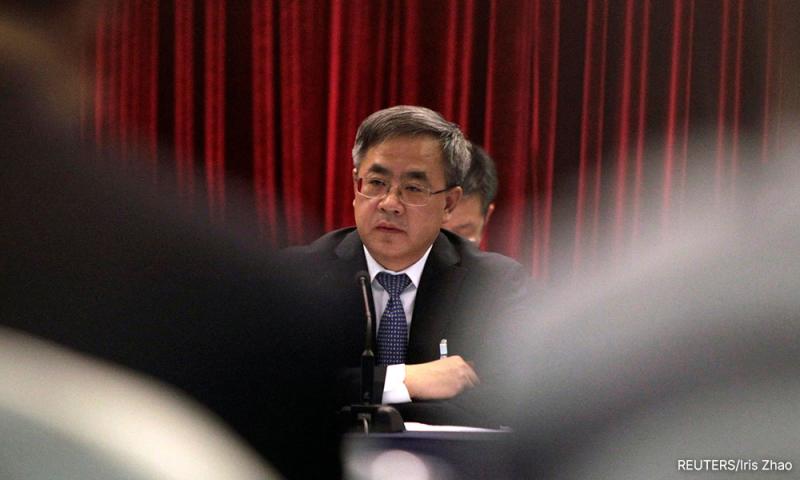Hu Chunhua: From rural roots to candidate for China premiership
From humble roots as the son of farmers in central Hubei province, Hu Chunhua has worked his way into China's ruling elite and is considered a top contender to become the next premier as the ruling Communist Party reshuffles its leadership.
Since becoming the youngest of four vice premiers in 2018, Hu (above) has overseen poverty alleviation, agriculture, trade and commerce portfolios amid the upheaval of Covid-19 and China's increasingly nationalistic and state-driven economic policy.
Before that, he spent five years as party boss of Guangdong, China's largest provincial-level economy. Some analysts say his operational experience makes him uniquely qualified to take on China's No 2 leadership role.
While Xi Jinping is widely expected to secure a third leadership term at the party congress that begins on Oct 16, there is much speculation over who will be tapped to replace Li Keqiang as China's next premier - a role seen to have become less prominent as Xi's power has increased.
"For his policy record, I would pick Hu," said Yu Jie, a senior research fellow on China at Chatham House. "He has a very good reputation, whether in the provinces or in his position as vice premier. He's someone who delivers."
Hu is depicted in state media as a man of action, sometimes shown checking on planting progress in far-flung provinces.
At 59, Hu is young enough by China's age norms to serve two five-year terms as premier, unlike Wang Yang, considered another top contender for the role, who is 67.
Youth league roots, poverty fighter
Hu got his start in the party training ground of the Communist Youth League. After being sent in the early 1980s to Tibet, where future President Hu Jintao would become party boss, he became known as one of Hu's proteges.
Despite his Youth League roots - the faction was seen to be a rival to Xi's - Hu has proved his loyalty to Xi by promoting many of his initiatives in rural areas, including the campaign to eradicate poverty.
China declared it had ended extreme poverty last year, a major success for Xi, but also for Hu, said Zhang Hongzhou, a research fellow with the China Programme at the S Rajaratnam School of International Studies in Singapore.
Hu's oversight of agriculture is also a key credential after Xi elevated food security to higher prominence following the Covid-19 outbreak, which emerged in the central city of Wuhan.
The decision not to compromise on food distribution in the early weeks of the pandemic in 2020 was a critical one, said a Beijing-based diplomat.
"Agriculture is not glamorous but it's hugely important for the Communist Party and domestic politics. Whoever is landed with this has to be a trusted person," said Chatham House's Yu.
Hu also wrote a paean to Xi's "historic achievements" on rural issues published in the party's official People's Daily in July. The article mentioned Xi roughly 50 times, lauding how he "personally takes command, personally goes to battle and personally supervises the battle" against poverty alleviation.
Though little is known of Hu's own views - Chinese politics have become increasingly opaque under Xi - Hu comes across as relaxed and a good listener, say people who have met him, making him appear open and interested in reform.
"He genuinely paid interest and attention to what I had to say, as well as to my colleagues from other chambers," said Joerg Wuttke, president of the EU Chamber of Commerce in China.
Hu had also joked about the European chamber's long list of complaints about Chinese economic policy. "Other leaders would not have taken that quite (as) well," said Wuttke.
- Reuters
RM12.50 / month
- Unlimited access to award-winning journalism
- Comment and share your opinions on all our articles
- Gift interesting stories to your friends
- Tax deductable

 Reuters
Reuters